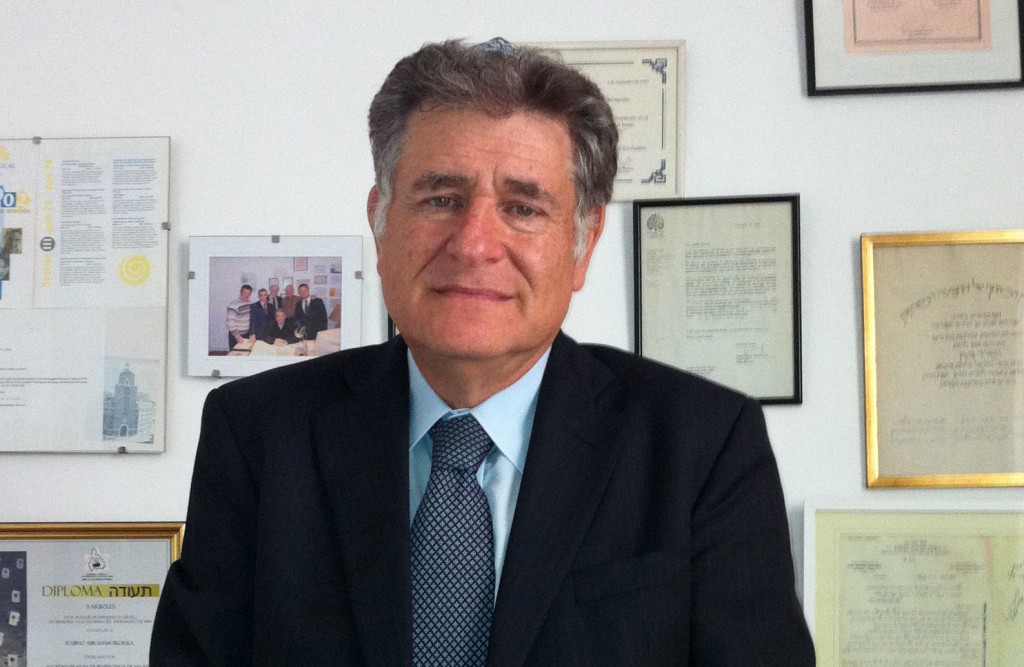
By Carol Glatz
An Argentine rabbi who is a close friend of Pope Francis said he thinks the pope is “wonderful” as leader of the universal church and is also “a spiritual success.”
Rabbi Abraham Skorka, an Argentine biophysicist and rector of the Latin American Rabbinical Seminary was in Rome in mid-June for a four-day interreligious gathering organized by the Focolare movement.
He and two dozen other participants — rabbis, Jews and Catholics from the United States, Italy, Argentina and Uruguay — attended the pope’s weekly general audience in St. Peter’s Square June 12.
Rabbi Skorka told reporters after the audience that the pope looked “very well” and was “wonderful” as pope.
However, “you don’t need my opinion,” the rabbi said. “You can see with your own eyes the success, the spiritual success,” he has achieved through his words, manners and even “revolutionary acts,” presumably including the pope’s decision not to live in the Apostolic Palace.
The rabbi said he is not at all surprised with the new pope’s popularity.
Not only will Pope Francis continue on in the same vein, the rabbi predicted, but he will be “emphasizing changes, accepting challenges more and more, undoubtedly with God’s help and God’s blessings.”
Then-Cardinal Jorge Mario Bergoglio and Rabbi Skorka shared a passion for soccer and worked together for years to bring Catholics and Jews closer together after some episodes of less-than-cordial relations in Argentina.
The Pontifical Catholic University of Argentina, which Pope Francis oversaw, awarded Rabbi Skorka an honorary doctorate in 2012, which, the rabbi said, was a watershed moment and could never have been done just a decade before. The achievement was a “revolution” brought on specifically “by Bergoglio,” he said.
The pair co-wrote the book, “On Heaven and Earth,” which is a compilation of conversations between the then-cardinal and rabbi first published in Buenos Aires in 1995. They discussed pastoral views on everyday problems and offered insight into how Judaism and Catholicism answer existential questions and provide guidance to living a moral life.
Rabbi Skorka told journalists in Rome that he could tell people “a thousand things” about the pope that truly stood out for him.
One of the many poignant moments they shared, he said, was working on the book. They spent the course of a year meeting together with a journalist who would record, transcribe and edit the two men’s conversation.
During that year, all three people endured the illness, suffering and death of a loved-one, the rabbi said; the cardinal lost one of his brothers, the journalist lost his mother, and the rabbi lost his mother-in-law.
When they approached the book’s chapter that would deal with death, “we all looked at death in these people we lost,” which helped them further develop their ideas, the rabbi said.
He said that the pope saw death as detachment from the world, which is not easy, but faith helps people know God is there to take their hands when they are ready to leap and abandon themselves to his embrace.
This “simple concept” contributed to the rabbi’s perspective of death as “handing over one’s spirit to the Father.” But this moment is also accompanied by “a fight,” especially in younger people who think about all the things they didn’t get to do yet in life, the rabbi said.
The rabbi said one day when the three men sat down to work on the book, the future pope asked the journalist how his mother was doing. The journalist replied, “She died.”
“Immediately, like a reflex, without thinking about it, Bergoglio closed his eyes and was silent,” the rabbi said. That moment of silence “was an expression of empathy,” living in the other person’s pain and loss for a moment, “as well as praying for the soul” of the departed, he said. – CNS